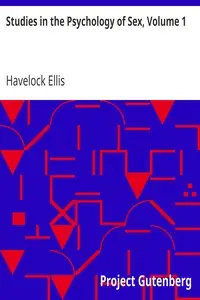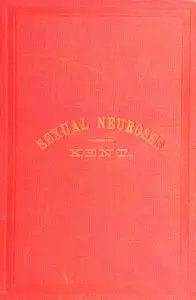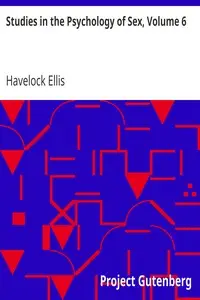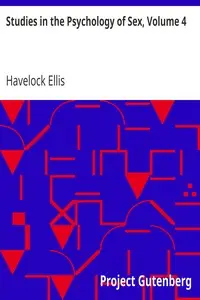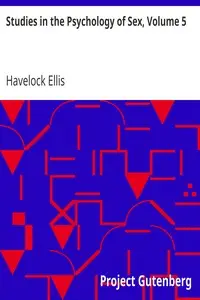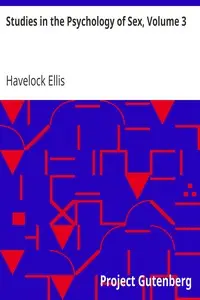"Studies in the Psychology of Sex, Volume 2" by Havelock Ellis is a book from the late 1800s to early 1900s that presents a scientific look at sexual inversion, mostly homosexuality, studying its effects on biology, psychology, and society. Ellis makes it clear that sexual inversion is often misunderstood as just a social problem instead of seen as something that science needs to study, which is why he thoroughly explores this subject. The book starts by introducing the ideas of sexual inversion and homosexuality, which are investigated further in the chapters. Ellis's introduction thinks about how homosexuality was seen in the past, pointing out the shame connected to it and the lack of knowledge about why it happens. Ellis recognizes that this subject needs intelligent people to study it, separating it from different kinds of homosexual attraction and explaining what will be covered in the work ahead. The beginning shows Ellis's plan to give a scientific explanation on what he thinks is a natural trait instead of just a strange social behavior, preparing for a closer look at past and current cases of sexual inversion.
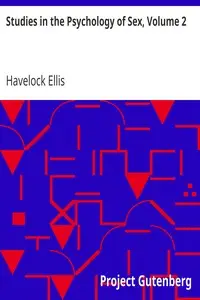
Studies in the Psychology of Sex, Volume 2 Sexual Inversion
By Havelock Ellis
Venture into a groundbreaking exploration of misunderstood desires and societal stigmas, where science confronts prejudice to illuminate the complexities of human sexuality.
Genres
Released
2004-10-08
Formats
epub3 (images)
epub
mobi
mobi (images)
epub (images)
txt
Free Download
Summary
About the AuthorHenry Havelock Ellis was an English physician, eugenicist, writer, progressive intellectual and social reformer who studied human sexuality. He co-wrote the first medical textbook in English on homosexuality in 1897, and also published works on a variety of sexual practices and inclinations, as well as on transgender psychology. He developed the notions of narcissism and autoeroticism, later adopted by psychoanalysis.
Henry Havelock Ellis was an English physician, eugenicist, writer, progressive intellectual and social reformer who studied human sexuality. He co-wrote the first medical textbook in English on homosexuality in 1897, and also published works on a variety of sexual practices and inclinations, as well as on transgender psychology. He developed the notions of narcissism and autoeroticism, later adopted by psychoanalysis.
Total Reviews
10.0k
Total reviews from Goodreads may change

